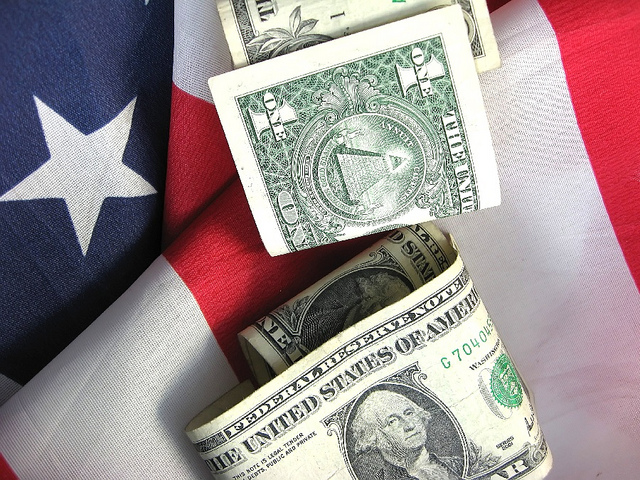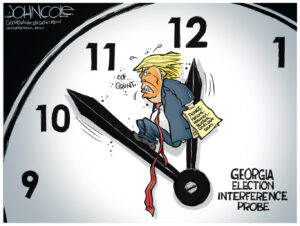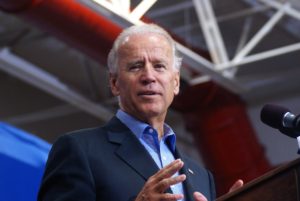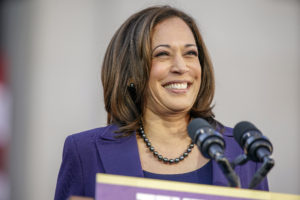Dems’ Decline of Corporate Money Could Put a Hurt on PACs
Most 2020 Democratic candidates have made the pledge, causing political action committees to question their ability to influence the party. Steve Johnson / Flickr Creative Commons
Steve Johnson / Flickr Creative Commons
“The one thing Democratic candidates for president can agree on” writes Politico’s Zach Montellaro, is that “they’re not taking money from corporate PACs.” A new article from Roll Call suggests that political action committees are getting nervous that anti-big money fervor means their influence is declining in the Democratic Party.
Beto O’Rourke, who raised more money in the first 24 hours after his campaign announcement than any other Democratic presidential candidate, told supporters that this feat proves that his is “a campaign by all of us for all of us that answers not to the PACs, corporations and special interests but to the people,” as Vox reported Monday. Sen. Cory Booker, D-N.J., says he “won’t take a dime from corporate PACs,” a pledge shared by Sens. Kirsten Gillibrand of New York, Amy Klobuchar of Minnesota, Bernie Sanders of New York, Elizabeth Warren of Massachusetts, Kamala Harris of California and former San Antonio mayor and presidential candidate Julian Castro.
Roll Call’s Kate Ackley reports that attendees at a Florida conference for corporate PACs came “seeking clues about the future of their beleaguered enterprises.” They “run the political action committees of corporations and business associations just when a growing contingent of lawmakers is rejecting their donations,” Ackley writes, noting that one session offered at the conference was titled “Under Siege.”
It is largely Democrats who are rejecting PAC money, Ackley points out. “If the trend spreads into the 2020 campaign cycle, it could put corporations and associations in a bind.”
As Kristin Brackemyre, senior manager of advocacy practice for the Public Affairs Council, explains, “We see some PACs that literally have it written into their bylaws that they will achieve a specific split, whether that’s 50-50 or, for some, it’s 60-40. … It’s not so easy for PACs to say, ‘Well, we’ll just give more money to Republicans.”
But anti-PAC activists wonder why Republicans can’t just say “no” too. Patrick Burgwinkle, spokesman for End Citizens United, told Ackley, “We would like to see Republicans refuse corporate PAC money and put the interests of their constituents ahead of corporate special interests, but we’re not holding our breath.”
PACs are also trying to convince candidates that they’re not the same as super PACs, which can raise and spend unlimited amounts of money to campaign independently for candidates for federal office. PACs can only donate $5,000 in a particular election cycle, unlike super PACs, which have no such restrictions as long as they don’t donate directly to a candidate. But PAC money can still support the running of ads, phone banks and other work on behalf of candidates that’s eerily similar to a campaign.
As Splinter’s Libby Watson argues, sometimes it’s not about the specific dollar amounts, but the kind of influence PAC money builds over time: “It may not be to specifically get one politician elected, but getting $5,000 from AT&T’s PAC means they’re far more likely to take AT&T’s call when they want to complain about net neutrality or having to pay taxes.”
Eager to convince candidates to continue accepting their money, and perhaps their influence, PACs are preparing their lobbyists for battle:
One PAC manager who attended the Florida seminar confided that she’d dispatched lobbyists armed with talking points explaining what corporate PACs really are. For example, the money comes from the personal funds of a select group of executive employees and their family members, not corporate treasuries (although companies and associations bear the administrative cost of operating a PAC).
While 2020 Democratic candidates may have rejected corporate PACs, their stance on super PACs is less clear. As Reuters points out, “Klobuchar, Harris, Booker, Gillibrand, Warren and Castro have said they also will discourage single-candidate Super PACs from operating on their behalf,” but “they cannot prevent them from doing so.”
Your support matters…Independent journalism is under threat and overshadowed by heavily funded mainstream media.
You can help level the playing field. Become a member.
Your tax-deductible contribution keeps us digging beneath the headlines to give you thought-provoking, investigative reporting and analysis that unearths what's really happening- without compromise.
Give today to support our courageous, independent journalists.






You need to be a supporter to comment.
There are currently no responses to this article.
Be the first to respond.